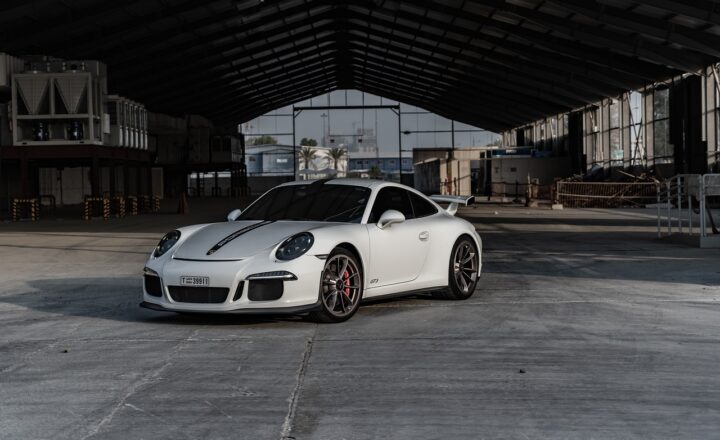The Secret Psychology of Luxury Cars: Why We’re Obsessed with High-End Rides
November 10, 2024

Luxury cars are more than just a mode of transportation; they are symbols of success, prestige, and personal aspirations. The fascination with high-end rides transcends mere functionality, rooted deeply in the psyche of consumers. In this guide, we will explore the psychological underpinnings of our obsession with luxury cars, how they affect our identity, and why owning one often feels like a rite of passage.
1. The Allure of Luxury: Understanding the Appeal
Luxury cars invoke a sense of desirability that is often unattainable to the average person. They represent an aspirational lifestyle characterized by wealth and sophistication. This allure can be dissected into several psychological components:
- Status Symbol: Historically, vehicles have been used to signify social status. The more luxurious the car, the higher the perceived social standing of its owner. Owning a high-end vehicle can enhance one’s image in the eyes of peers, creating a social hierarchy that is deeply embedded in human culture.
- Personal Identity: For many, the cars they drive are an extension of their identity. People often choose vehicles that reflect their personal dreams, values, and lifestyles. The choice of a luxury car can align with one’s self-image, projecting an image of success and refinement.
- Emotional Connection: Luxury vehicles often evoke strong emotional responses. They might remind individuals of a dream they’ve aspired to since childhood or of someone influential in their lives who drove a luxury car. This emotional connection creates a deeper appreciation for the brand and the car itself.
Understanding these underlying motivations helps to unpack why many find themselves mesmerized by luxury cars.
2. The Role of Branding in Luxury Car Appeal
Luxury car brands are often synonymous with quality, performance, and status. Through effective branding strategies, companies create an image that consumers aspire to. Here’s how branding factors into the allure of luxury automobiles:
- Exclusivity: Luxury car brands often emphasize exclusivity, limiting the number of units produced, which adds to the desire. People are inherently drawn to what is rare and minute. Limited edition releases or custom builds can drive sales, as the owning experience feels unique and privileged.
- Quality Signal: High-end brands specialize in crafting their reputation on quality. The luxury car experience promises top-tier materials, advanced technology, and superior engineering, further enticing potential buyers to invest in these vehicles.
- Luxury Marketing: Advertising strategies often incorporate emotional storytelling, using strong visuals and aspirational lifestyles to capture the consumer’s imagination. Instead of merely selling a car, luxury brands market an entire lifestyle, inviting buyers to envision themselves within that narrative.
These branding strategies contribute significantly to how and why people become obsessed with luxury cars, forming a connection that transcends mere functionality.
3. The Psychological Effect of Driving Luxury Cars
Driving a luxury vehicle goes beyond transportation; it can have profound effects on self-esteem and mental well-being. Cognitive biases and psychological phenomena that contribute to this can include:
- Cognitive Dissonance: When individuals perceive their luxury car as an extension of themselves, they rationalize the purchase by amplifying its perceived value. This necessitates maintaining a positive self-image through the ownership of such vehicles, leading to cognitive dissonance if their financial situation does not align with car ownership, resulting in justifying expenses to mitigate discomfort.
- Social Proof: Luxury cars become punctuated markers of social success. As individuals observe others’ satisfaction from owning luxury cars, they are psychologically encouraged to pursue the same path. This social proof can drive mass desire and even influence purchasing decisions among specific demographics.
- Reward Systems: Driving luxury cars releases dopamine. When individuals associate their vehicle with pleasure and desirability, it becomes linked to their reward centers in the brain, making luxury cars appealing not only as objects but also as instruments that enhance pleasure and satisfaction in daily life.
The psychological effects of driving high-end cars contribute to a persistent passion and obsession, driving the market for luxury vehicles ever higher.
4. Economic Factors Contributing to Luxury Car Obsession
In the landscape of luxury vehicle consumption, economic factors significantly shape consumer behavior. Here’s how:
- Affluence: The rise of disposable income, especially among younger generations, signals a cultural shift where luxury is more accessible. The economic boom of recent years has contributed to fostering an environment where owning a luxury car seems within reach for more individuals, not just the super-wealthy.
- Financing Options: The availability of lease deals and financing options allows more consumers to afford high-end vehicles. Institutions frequently market affordable repayments, enabling consumers to rationalize extravagant purchases even if their budget may not warrant it fully.
- Status-Driven Consumption: The phenomenon of ‘keeping up with the Joneses’ drives people to acquire luxury goods, including cars. Economic pressure to conform often compels individuals to pursue status through ownership, effectively implementing luxury into their lifestyle as both an investment and a means of social mobility.
These economic factors explain why luxury cars have continued to maintain an allure for many individuals, even during economic downturns.
5. The Impact of Social Media on Luxury Car Trends
Social media platforms play a crucial role in shaping consumer attitudes towards luxury brands. The effect is particularly pronounced in the automotive industry:
- Influencers and Celebrities: Celebrities and automobile influencers showcase luxury cars through their platforms, creating aspirational content that captivates their audience. The portrayal of these vehicles in luxurious settings creates a desire that influences the buying decisions of their followers.
- User-Generated Content: Consumers increasingly seek validation through the approval of others who have purchased luxury cars. This user-generated content amplifies desire and social proof, encouraging potential buyers to take the leap towards ownership more aggressively.
- Curated Experiences: Brands utilize social media to share curated experiences involving luxury cars. Virtual showrooms, online advertising, and campaigns that focus on lifestyle marketing create aspirational forms of engagement, wherein potential buyers associate these vehicles with positive experiences and life achievements.
Social media enhances the visibility and desirability of luxury cars, contributing heavily to the ongoing obsession surrounding high-end rides.
Conclusion: The Everlasting Fascination with Luxury Cars
The obsession with luxury cars is intricately woven into the fabric of modern culture. With psychological, economic, and social dynamics influencing modern automotive trends, it’s evident that this allure extends beyond mere transportation. Ultimately, luxury cars serve as a profound socio-psychological phenomenon, highlighting human desires for status, identity, and belonging. Understanding this obsession not only sheds light on consumer behavior but also emphasizes the social constructs that continue to shape our perceptions of success and personal fulfillment. Whether it’s the thrill of the drive or the status it conveys, the secret psychology of high-end rides ensures that they will remain an object of desire for generations to come.








